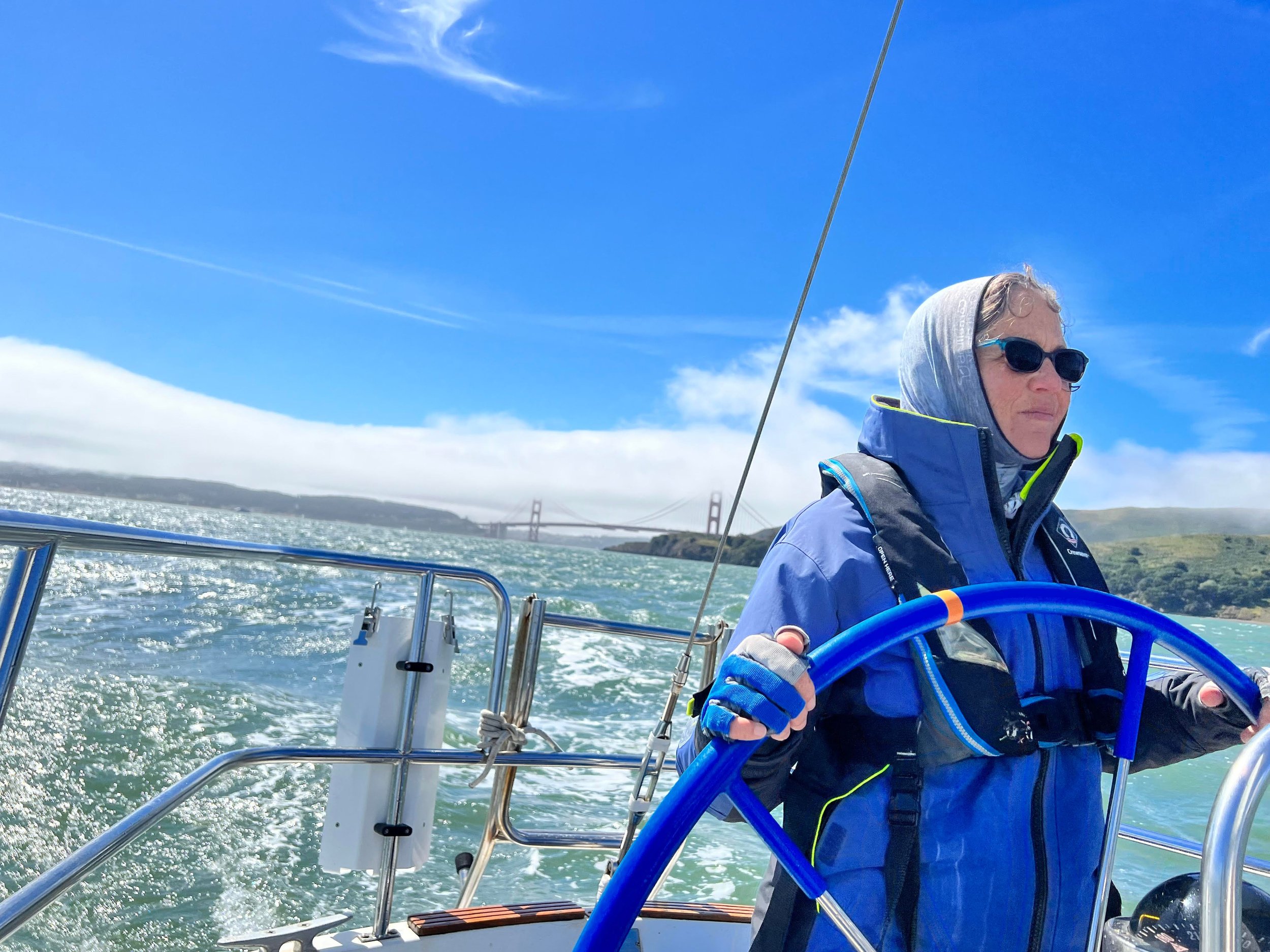
About the Author
Sally Lee Stewart is a fourth-generation Californian and elementary education specialist. She lives on a cooperatively grazed ten-acre farm in the coastal hills of Northern California and sails on the San Francisco Bay. The Angle of Vanishing Stability is her first novel.
Photo credit: Madhav Nyapathi
Threshold
Read more of Sally’s essays on Substack.
One of my cats is missing. I cross the bridge over the creek to find out why, in the middle of the night, the younger members of the herd are bleating, and to see if I might find my cat. With my headlamp on, I see 82 eyes looking at me, the eyes of the billy goat set farther apart. I feel so many blessings. I really don’t want to lose a cat tonight.
It takes a while to go to sleep. I fall asleep and dream of the missing cat, Whisper, emaciated, depleted, absolutely exhausted with a band-aid over one ear.
I give up on finding my cat, and lay in bed asking myself how I got to this point. I’d long ago given up on the arts, feeling my aptitudes were not strong enough. It was fulfilling to see young children paint in a minute something glorious and complete, as if with a direct highway to the subconscious. Observing a student discover, in a mirror, that all of language relates to the opening and closing of the mouth, or hearing them laugh at what their name sounds like without vowels, or compose their first authentic sentence, print it out with their own hand, had been enough.
Then misfortune came. It came in a shocking way and I began to write everyday with more intensity than usual as if catching myself in the net of my own words and soothing myself with the ribbon of ink, illegible to anyone else, upon the evenly spaced lines upon the paper. While I was writing I found bits of writing I’d forgotten about, in computers, notebooks, and folded into notebooks. I loved not writing, and yet I had been writing. My muse had been trying to appear through my life, like pentimento in a painting. This wasn’t vanity or something planned, it was song, it was blood, the blood of generations perhaps, a growing stain, and the more it expanded, the more I felt my pain, and the more I entered a new self, the self that was going to walk out of the wound. It was taking time, but it was happening. Even with the first numb stage, sun was sun, light was light, and tea was tea. I could hang on with that much. All I had to do was write and I would meet myself, just a little bit, each day, the woman who was the hurt woman, became the woman. I looked forward to the mornings, the winter sun, my mentor, on the page as I scrawled. Pages accumulated, and when I read them, this world where I live of cottonwoods and willows replicated, the one real, the other artifice, the world of artifice an elliptical record of passing moments, something that had been mine, that would disappear. It was a love song to the chance to live.
The physical world around me had its expressions; aridity, the spreading of manure, the first light rains, leaves falling off, and then land becoming saturated, storms where I winced at the sound of branches hitting the house. At some point in this rhythm, I adopted two tiny barn kittens, Magnet and Whisper. The two worlds, the world of my book, and this world, danced together.
Morning. Still no Whisper. I walk out to the pasture. Whisper, I call. Would a cat sleep with sheep? A tiny, wet lamb rests against its proud mother. I go back into the house with the last bit of warm tea in my cup, drink it and place the empty cup on the sink counter. Then Whisper, pleased, stretching, meows at me outside the door. I let her in.